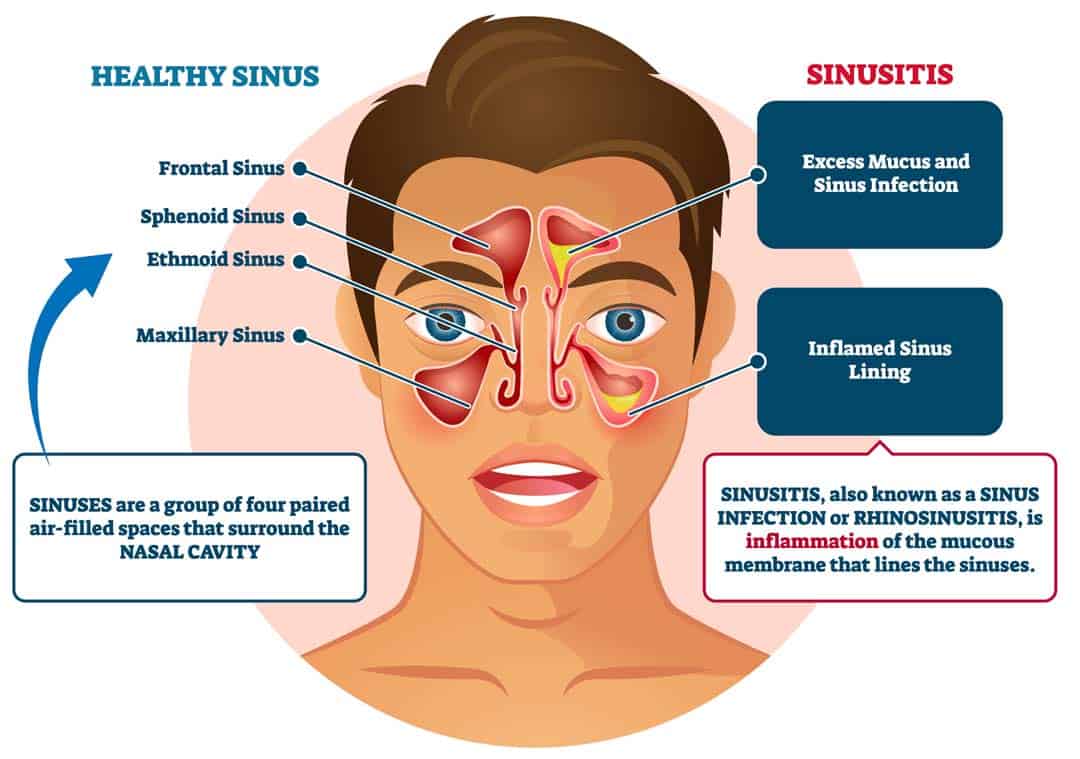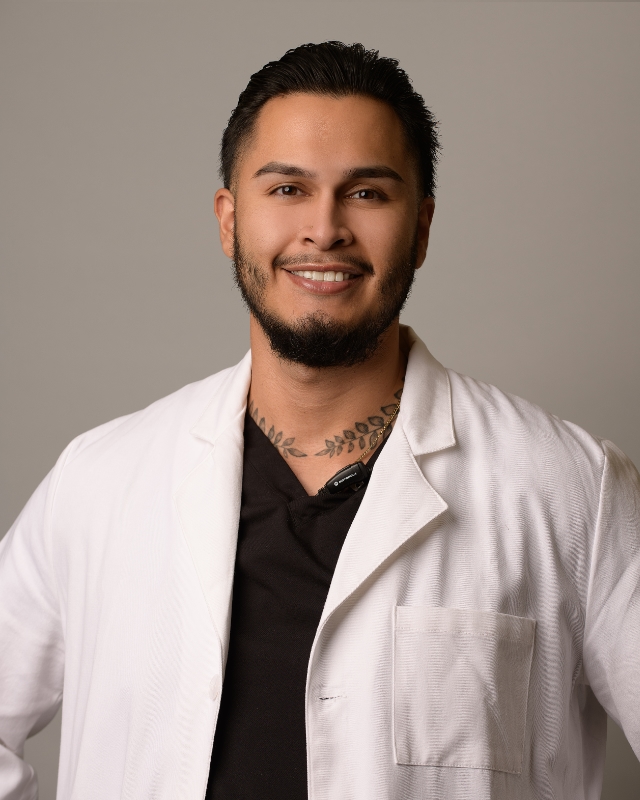Sinus Infection

What is Sinus Infection?
A sinus infection (also called sinusitis) is inflammation or swelling of the tissue lining the sinuses, the hollow spaces in your skull around the nose and eyes. It often occurs when fluid builds up in the sinuses, allowing germs—such as viruses, bacteria, or fungi—to grow.Common symptoms include nasal congestion, facial pain or pressure, headache, thick nasal discharge, reduced sense of smell, and sometimes fever. Sinus infections can be acute (short-term) or chronic (lasting 12 weeks or more). Treatment may include rest, fluids, nasal sprays, decongestants, and, if bacterial, antibiotics. Managing allergies and avoiding irritants can help prevent future infections.
What are the symptoms of a sinus infection?
A sinus infection (sinusitis) is a condition involving inflammation, infection, or both within your nasal passages. The typical symptoms of a sinus infection include:
- Nasal congestion
- Cough
- Runny nose
- Facial pain or pressure
- Headache
- Tooth pain
- Bad breath
- Thick green or dark yellow nasal discharge
Because sinus infections often begin as common colds, the symptoms can be quite similar. But, when your symptoms persist beyond the normal expected time for cold recovery, your doctor may diagnose a sinus infection. Acute sinusitis is a sinus infection lasting less than four weeks. When symptoms last more than 12 weeks, it’s chronic sinusitis.

What causes sinus infections?
Anything that affects your sinus drainage pathways can potentially lead to sinus infections. Common causes include allergies, nasal bone partition deformities, and nasal polyps. If you have a weak immune system, you may be especially vulnerable to sinus infections.
How do you diagnose sinus infections?
The Bellagio Family Medical, team uses a variety of techniques to diagnose sinus infections. The diagnostic process usually involves a physical exam and allergy testing.
You may also need an advanced type of exam, a nasal endoscopy, so your doctor can view your nasal passages up-close. In some cases, you may need advanced imaging tests like MRI or CT scan to help your doctor diagnose sinus passage abnormalities.
What is the treatment for acute and chronic sinusitis?
Treatment depends on symptom severity, underlying health problems, and whether your sinusitis is acute or chronic.
Acute sinusitis treatment
Acute sinusitis treatment may not require prescription medicine. Decongestants, sinus saline rinses, rest, and hydration are key to recovery. If you have a bacterial infection, your doctor can prescribe antibiotics to speed your recovery.
Chronic sinusitis treatment
With chronic sinusitis, treating the root problem is important. This may involve allergy shots, avoiding triggers, and making some environmental changes.
Your doctor may prescribe a nasal corticosteroid. Most cases of chronic sinusitis don’t involve bacterial infection, which means that antibiotics won’t help. If you have a fungal infection, your doctor may prescribe an antifungal drug.
Should conservative care fail, you could need sinus surgery to remove blockages and restore healthy sinus passages.
Get sinus infection treatment from Bellagio Family Medical, by calling or booking your appointment online.




